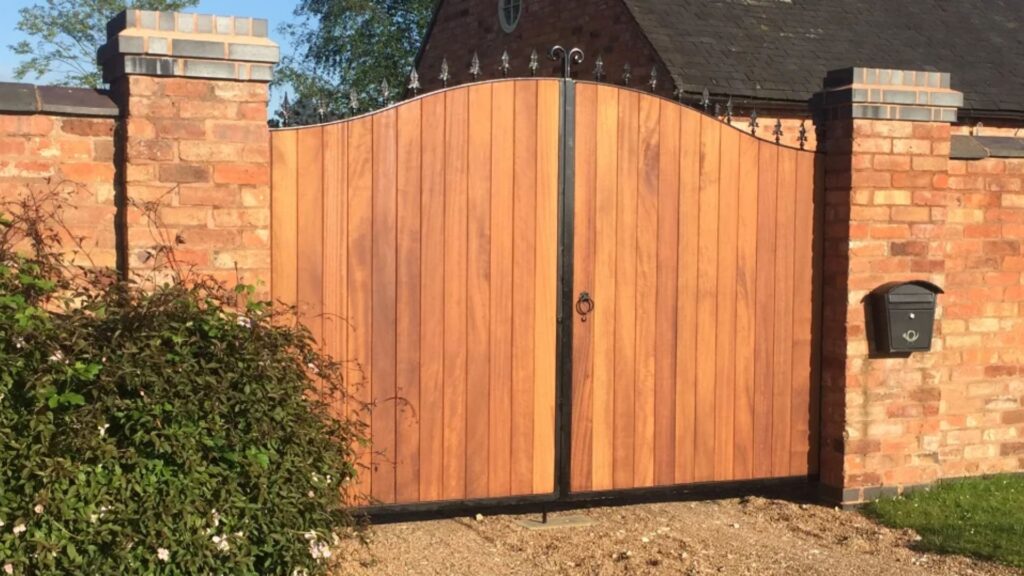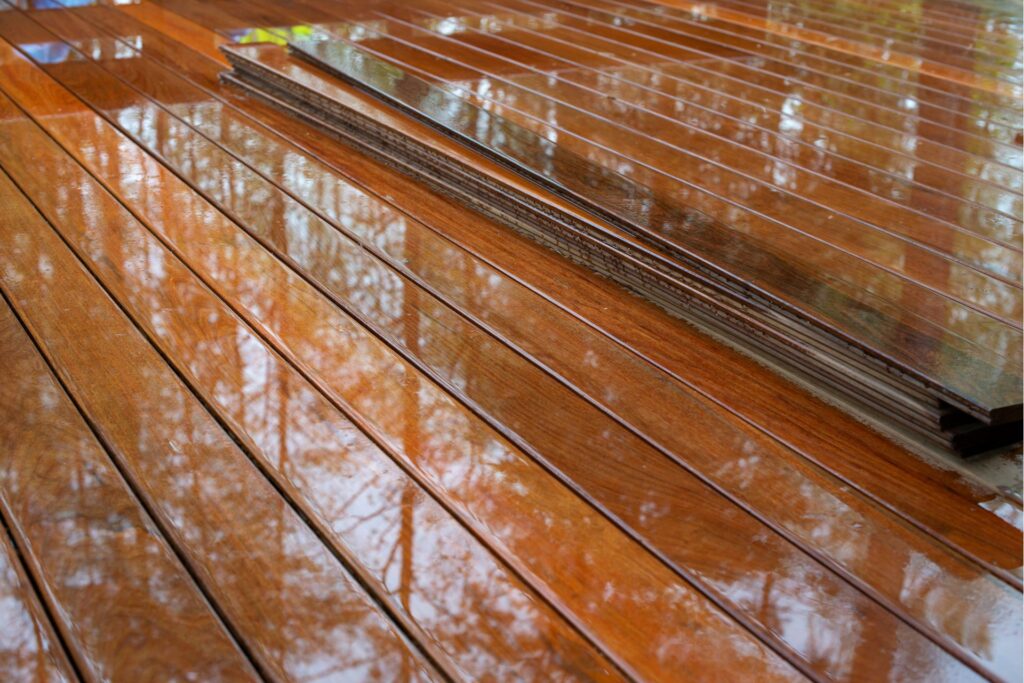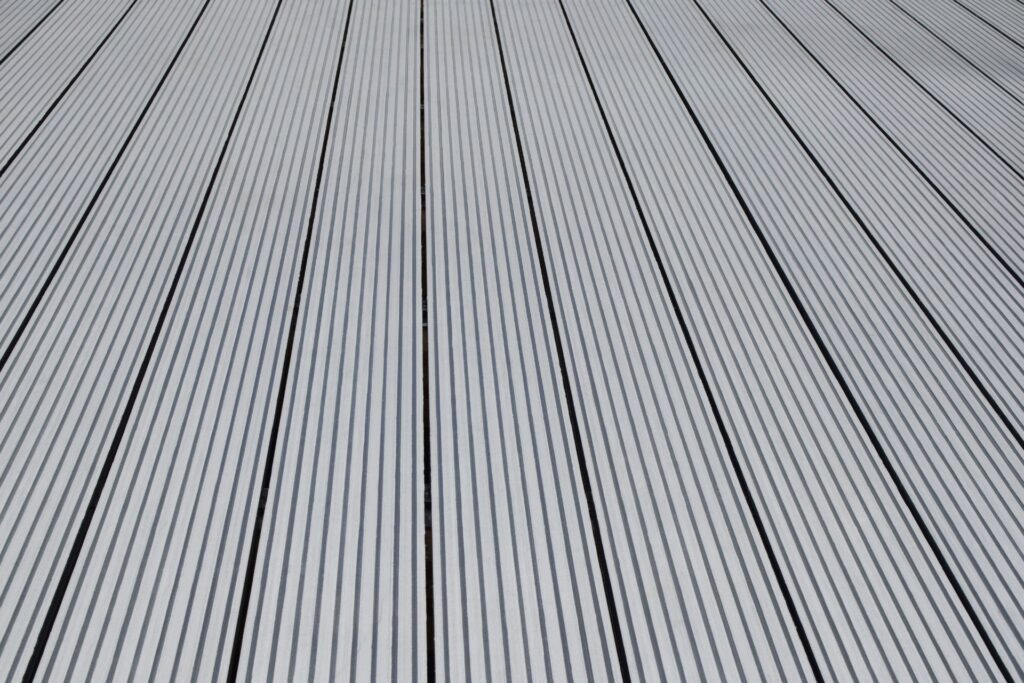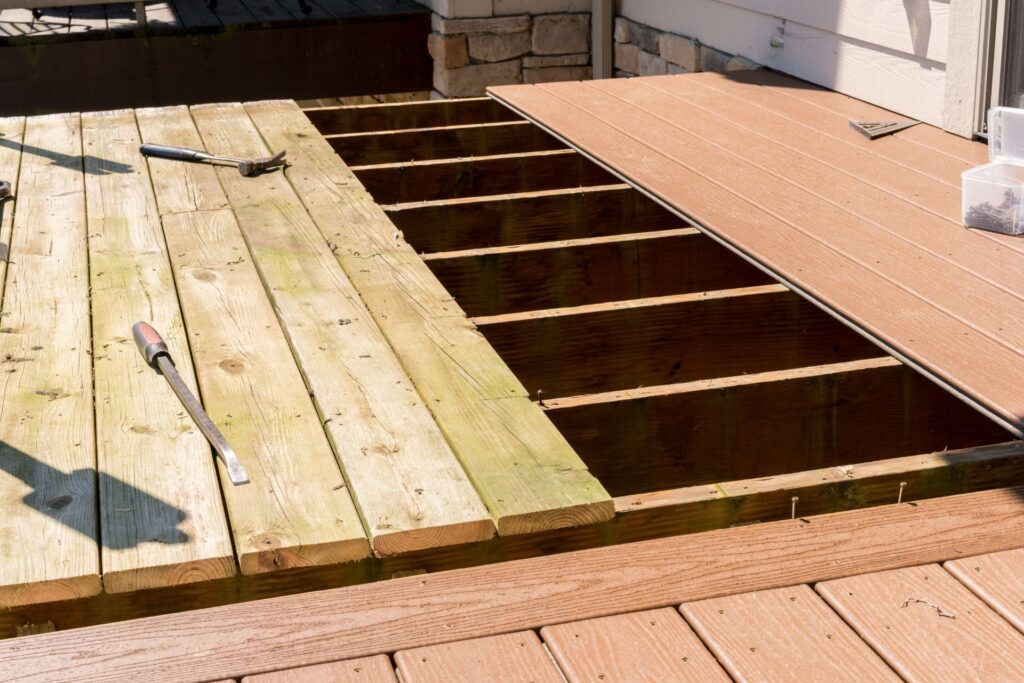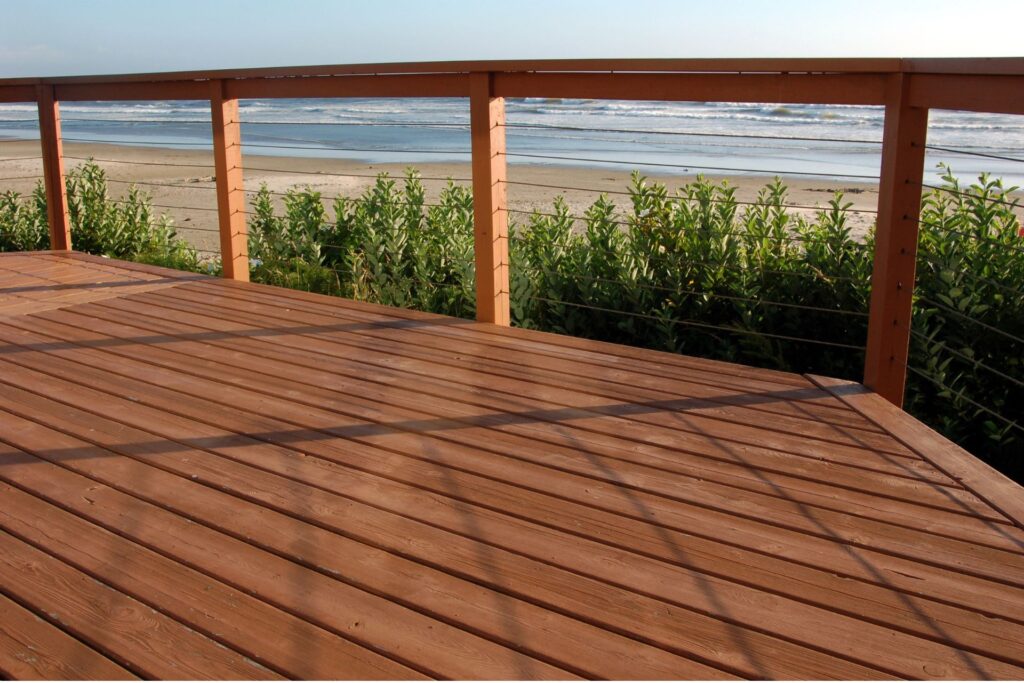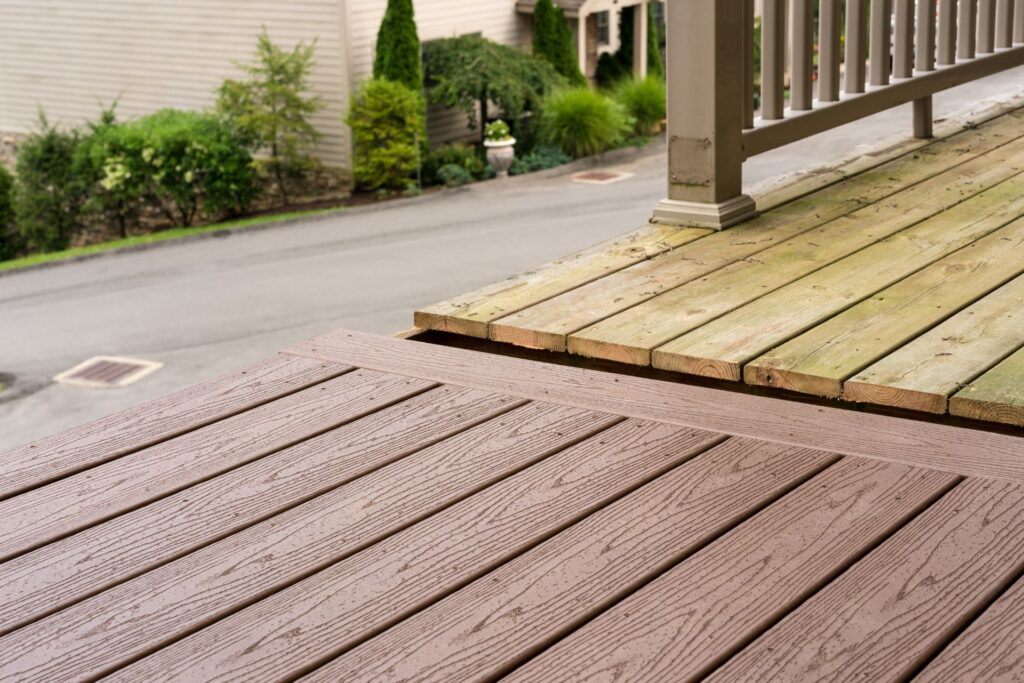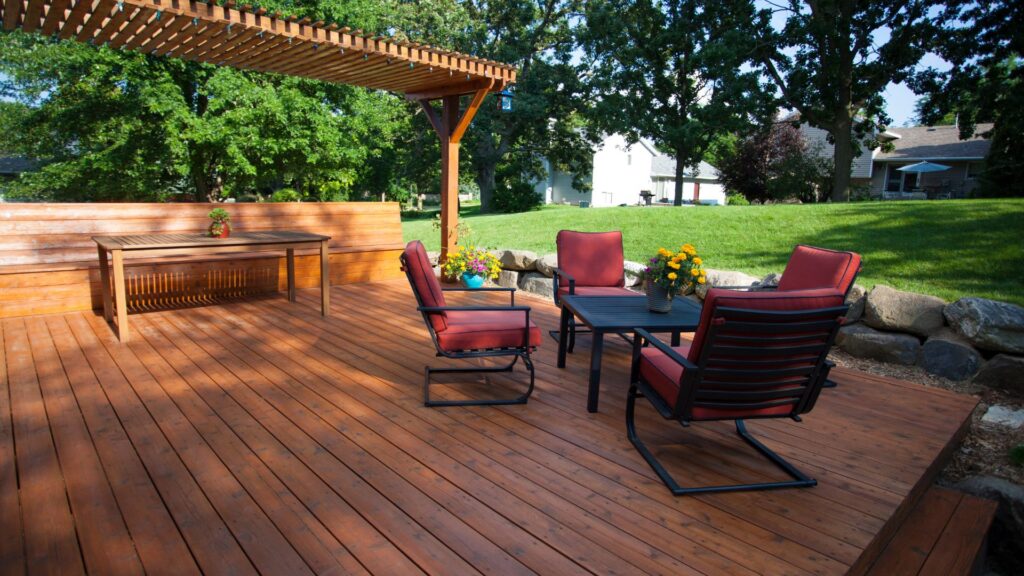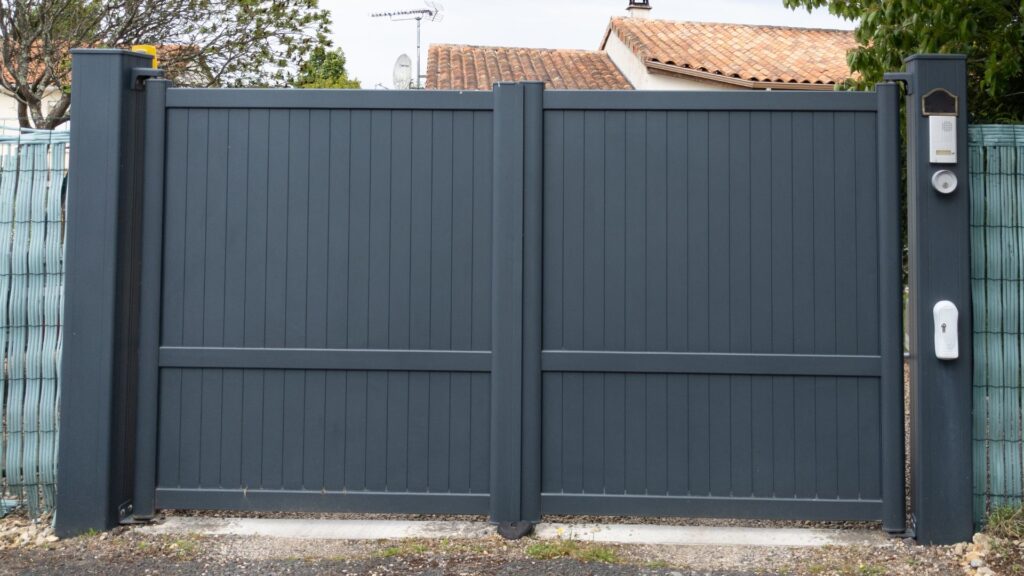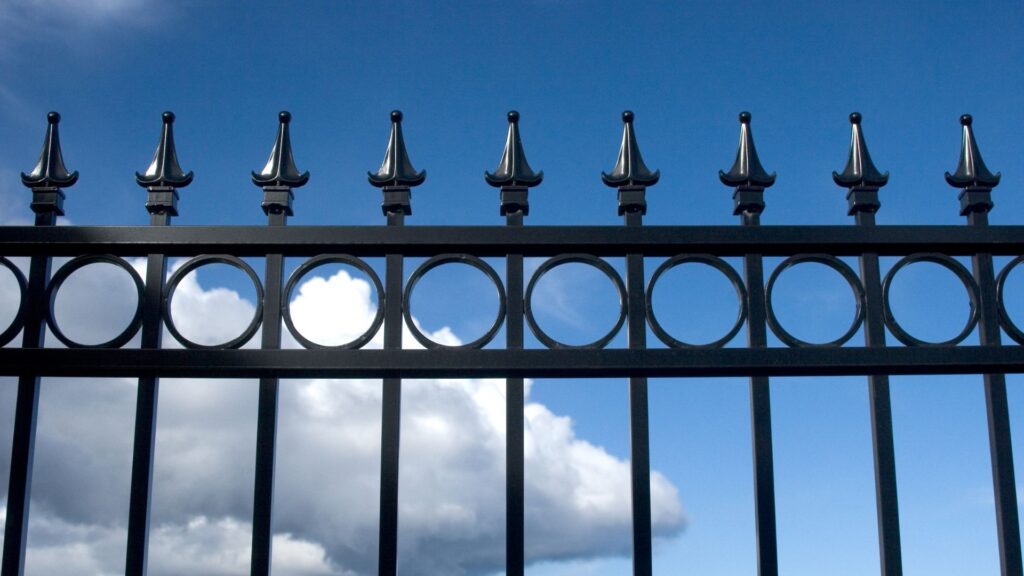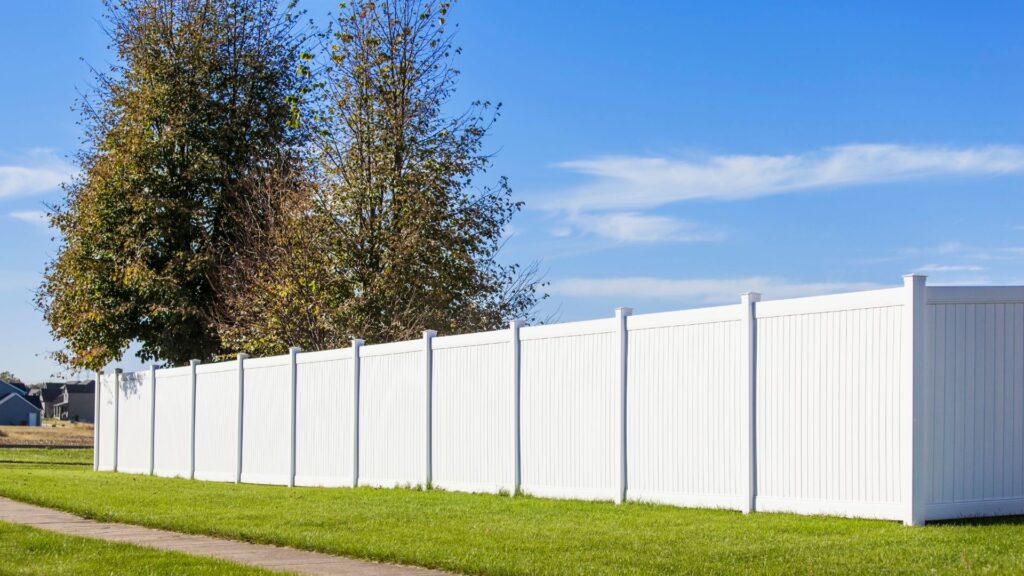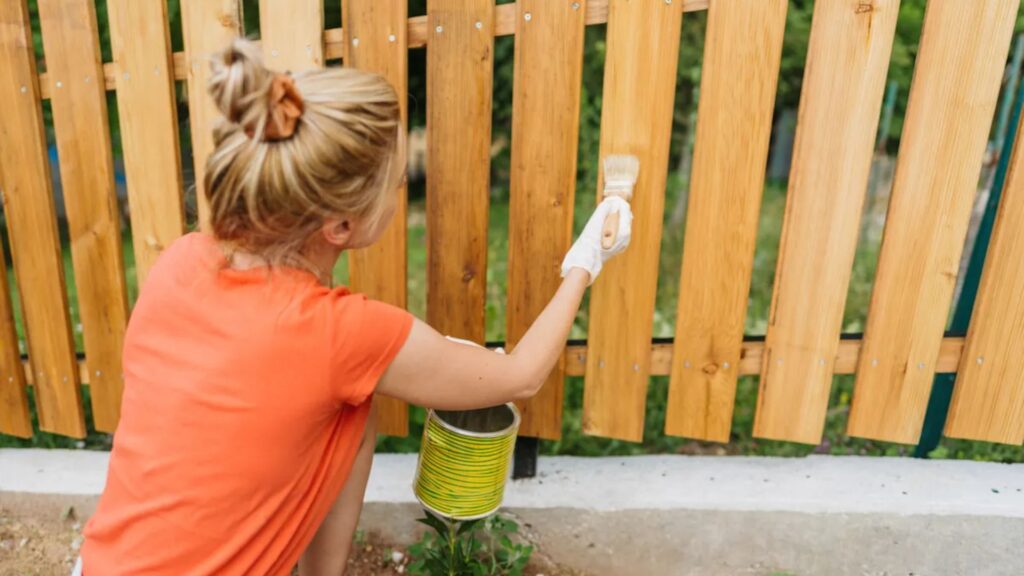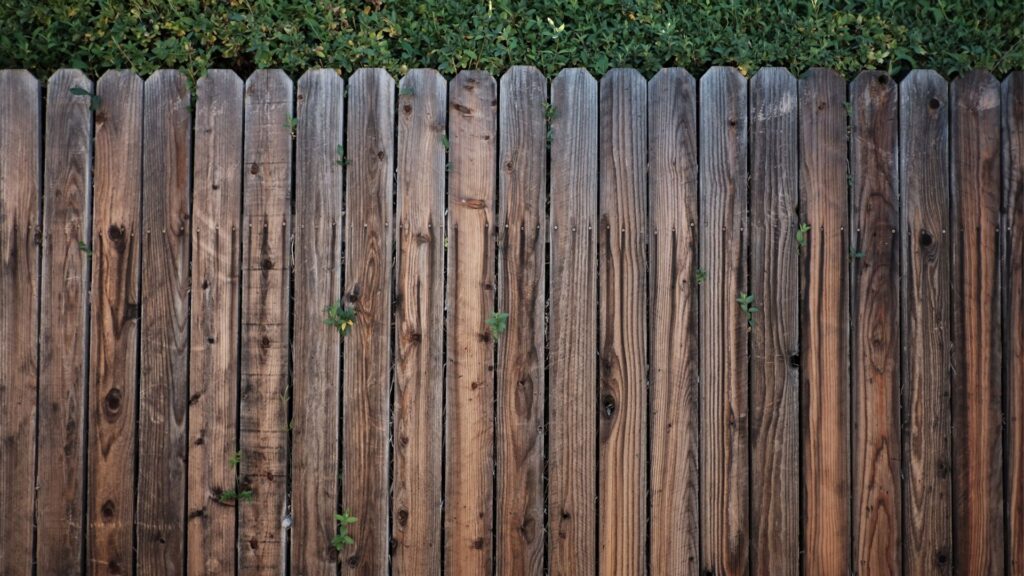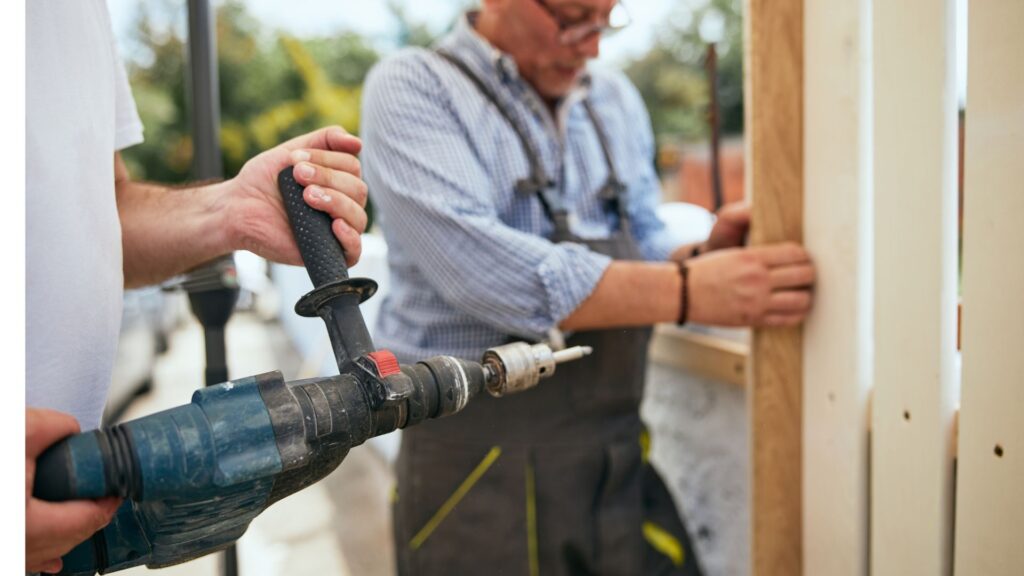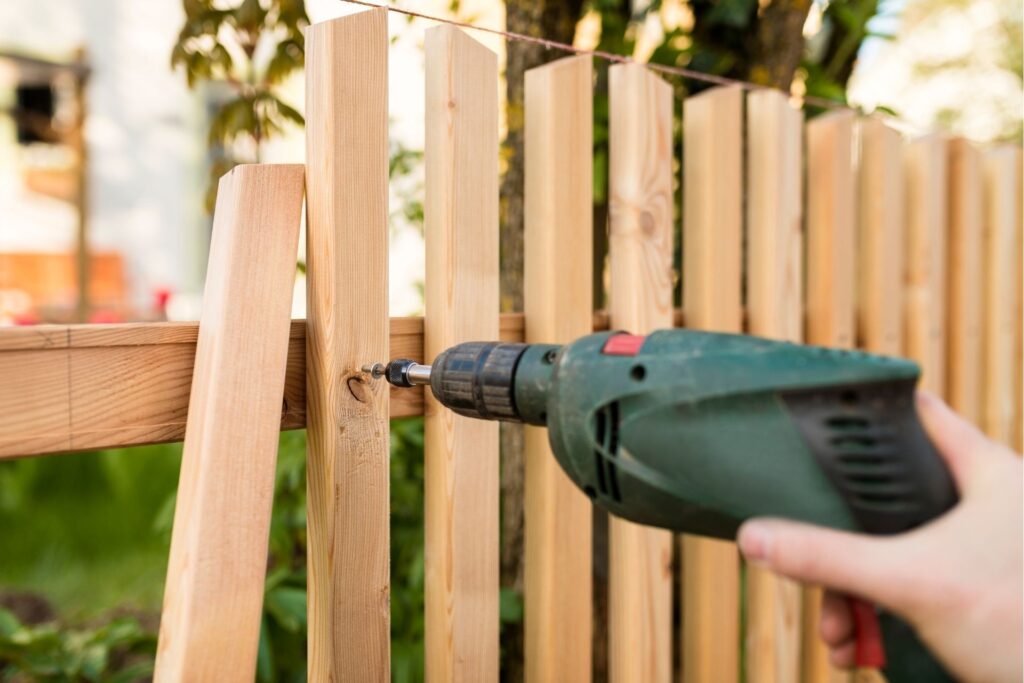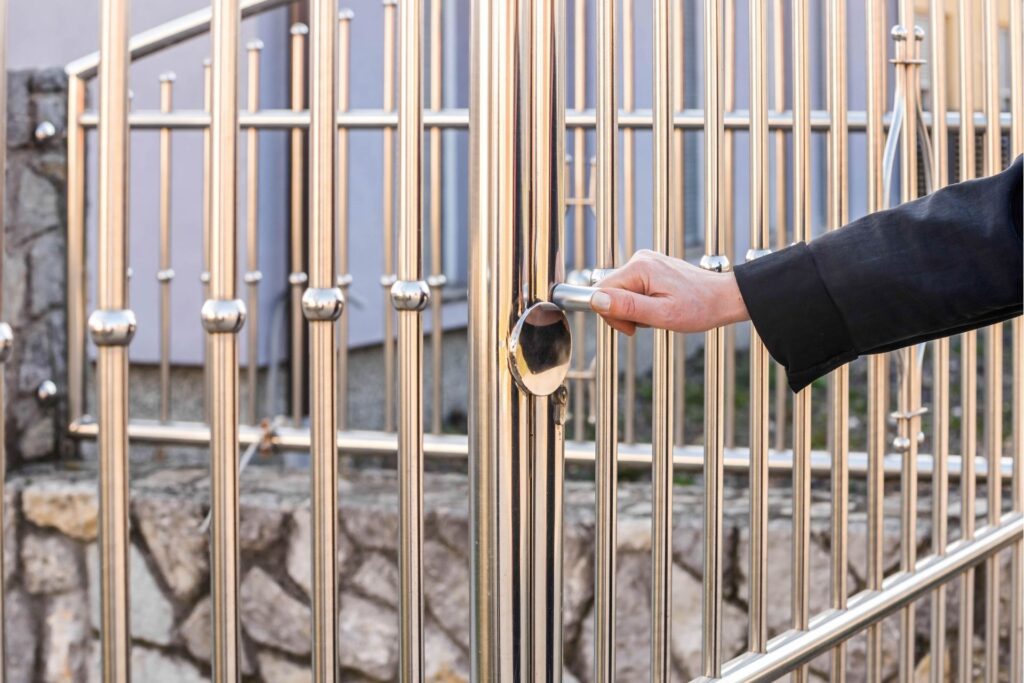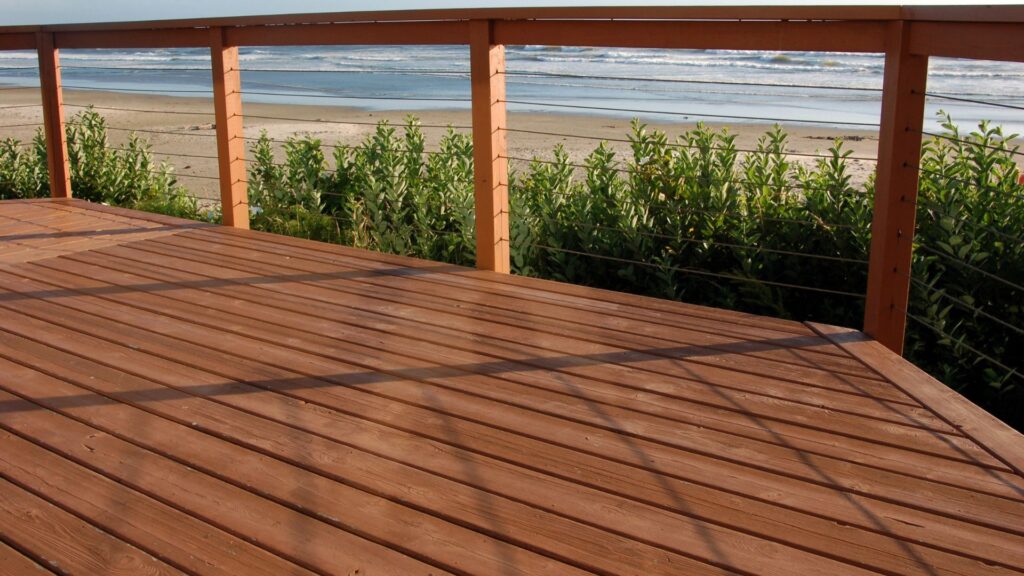Welcome to the ultimate guide for homeowners and property owners facing the common question: “Are wooden or metal gates cheaper?” When it comes to choosing a gate for your home, many factors come into play—style, security, maintenance, and most importantly, cost. With so many options available, deciding between wooden and metal gates can feel overwhelming. In this post, we’ll break down everything you need to know about the upfront costs, long-term savings, durability, and aesthetics of each option, helping you make the best choice for your budget and needs. Whether you’re looking for the rustic charm of wood or the sleek durability of metal, we’ve got you covered—so let’s dive in!
On average, wooden gates cost between $300 to $1,500 depending on the type of wood and design, while metal gates, such as steel or wrought iron, typically range from $600 to $4,000. Although wooden gates are generally cheaper upfront, metal gates often require less maintenance over time, potentially leading to greater long-term savings.
Table of Contents
Initial Cost Comparison
When considering the purchase and installation of gates, both wooden and metal options provide distinct advantages and price ranges. This section will break down the initial costs associated with each, helping homeowners make an informed decision.
Wooden Gates: Initial Purchase and Installation Costs
Wooden gates are a popular choice for their natural appearance and customizable designs. The initial cost of a wooden gate can vary widely based on the type of wood, size, craftsmanship, and installation requirements.
Price Range for Wooden Gates
On average, the cost of a wooden gate typically ranges from $300 to $1,500. This range is heavily influenced by factors like the quality of the wood, the dimensions of the gate, and any custom design elements.
Wood Types and Their Impact on Cost
Different types of wood come with varying price points. For example:
- Pine: A softwood that is generally more affordable, with a lower initial cost.
- Cedar: Slightly more expensive than pine, cedar is valued for its durability and resistance to rot.
- Hardwoods: Premium choices like oak, mahogany, or teak can drive up the cost significantly due to their strength, longevity, and aesthetic appeal.
Choosing a softwood like pine will keep the overall cost lower, but opting for a hardwood could provide more long-term durability, though at a higher upfront cost.
Impact of Craftsmanship and Design Complexity
Beyond the material, the level of craftsmanship and design complexity can also influence the price. For instance, a simple, functional gate will generally be more affordable, while a gate featuring intricate carvings or custom designs will increase the total cost. Custom gates require more skilled labor and time, which adds to the expense.
Installation Costs
The cost to install a wooden gate typically falls between $150 and $1,000, depending on the complexity of the installation and labor rates in your area. Custom gates or those requiring specific carpentry work will increase the installation costs. Additionally, the location where the gate is being installed, such as on sloped land or an area with limited access, may also impact the labor expenses.
Metal Gates: Initial Purchase and Installation Costs
Metal gates offer a sleek, durable alternative to wood, with options that can suit a variety of budgets and aesthetic preferences. The cost of a metal gate varies depending on the material, design, and installation.
Price Range for Metal Gates
Metal gates are generally more expensive than wooden ones. You can expect to pay between $600 and $4,000 for a metal gate, depending on the material and complexity of the design. Here’s a breakdown by material:
- Wrought Iron: Known for its classic, ornate appearance and exceptional durability, wrought iron gates typically fall on the higher end of the pricing spectrum, around $1,500 to $4,000.
- Steel: Steel gates offer a sturdy option at a mid-range price point, usually between $800 and $3,000.
- Aluminum: Lightweight and rust-resistant, aluminum gates are generally more affordable, ranging from $600 to $2,500.
Design Factors
The design of a metal gate plays a significant role in determining its price. A simple, utilitarian design will be more budget-friendly, whereas an elaborate, ornate gate with intricate detailing will increase both material and labor costs. Custom-designed metal gates, especially those made from wrought iron, can significantly raise the overall price due to the craftsmanship involved.
Installation Costs
Metal gate installation tends to be more expensive than wooden gates due to the heavier materials and the complexity of the installation process. The cost of installation generally ranges from $300 to $1,500, depending on factors such as the gate size, weight, and any custom requirements. However, because metal gates typically require less ongoing maintenance compared to wood, many homeowners see the higher initial investment as worth the long-term savings.
Wood vs. Metal Gate Installation Comparison:
In general, installing a metal gate can be more costly than a wooden gate. This is due to the weight of the metal, which may require specialized equipment or additional labor to install properly. Additionally, metal gates often come with added features like automation for opening and closing, which can increase both material and installation costs.
Both wooden and metal gates have their own advantages and cost considerations. Wooden gates, while offering a lower initial cost, may require more maintenance over time, particularly with softer woods. Metal gates, while typically more expensive upfront, offer durability and lower maintenance costs in the long run. When choosing between the two, it’s essential to weigh factors such as aesthetic preference, long-term durability, and your budget for both initial costs and future maintenance.

Durability And Longevity
When choosing a gate for your property, durability and longevity are key factors to consider. The materials you choose will directly impact not only the gate’s lifespan but also the level of maintenance required to keep it in optimal condition. In this section, we’ll explore how wooden and metal gates perform over time and what kind of upkeep you can expect for each.
Wooden Gates: Lifespan and Maintenance
Wooden gates offer a classic, natural look that many homeowners love, but they come with specific longevity and maintenance considerations. On average, a well-maintained wooden gate can last between 10 and 15 years. However, several factors can influence this lifespan, including the type of wood used, the local climate, and the frequency and quality of maintenance.
Climate’s Impact on Wooden Gates
Wood is a natural material, and its durability is affected by environmental conditions. In humid or rainy climates, wood is more susceptible to moisture, which can lead to rot, mold, and warping. Additionally, areas with a high population of insects, particularly termites, can cause significant damage if the wood is not properly treated. Regular exposure to harsh sunlight can also dry out the wood, causing cracks and weakening its structure over time.
Wood Type Matters
Not all woods are created equal when it comes to longevity. Hardwoods like cedar, teak, and redwood are more resistant to moisture and insects compared to softer woods like pine or fir. If you’re in an area with tough environmental conditions, investing in a high-quality hardwood can add years to your gate’s lifespan.
Maintenance Requirements
To maximize the lifespan of your wooden gate, regular maintenance is essential. Annual or bi-annual sealing or painting is necessary to protect the wood from the elements. Without proper sealing, moisture can seep into the wood, leading to rot and decay. Additionally, any signs of rot or damage should be addressed immediately by replacing affected sections. This ongoing upkeep adds to the long-term cost of wooden gates, but it’s a small price to pay to ensure they remain both functional and visually appealing.
Metal Gates: Lifespan and Maintenance
Metal gates, whether made from wrought iron, aluminum, or steel, are known for their durability and long lifespan. With proper care, metal gates can last significantly longer than their wooden counterparts, often exceeding 50 years. Each type of metal comes with its own advantages in terms of longevity and required maintenance.
Wrought Iron Gates
Wrought iron is one of the most durable materials for gates. When properly treated to prevent rust, a wrought iron gate can last for decades, sometimes over 50 years. However, because iron is prone to rust when exposed to moisture, applying protective coatings and rust prevention treatments is essential, especially in coastal or humid areas. Fortunately, these treatments are usually required only every few years, making maintenance relatively simple.
Aluminum Gates
Aluminum gates are an excellent choice for those looking for a low-maintenance, long-lasting option. Aluminum is naturally resistant to rust and corrosion, making it particularly suitable for wet or coastal environments. In addition to its resistance to the elements, aluminum gates are lightweight, which reduces strain on the hinges and hardware, contributing to their long-term durability. With minimal care, such as occasional cleaning, aluminum gates can maintain their appearance and functionality for many years.
Steel Gates
Steel gates offer a middle ground between wrought iron and aluminum in terms of durability and maintenance. They are more affordable than wrought iron and stronger than aluminum but are still susceptible to rust if not properly treated. However, modern powder-coating techniques can significantly extend the lifespan of steel gates by providing a robust layer of protection against the elements.
Lower Maintenance Compared to Wood
One of the biggest advantages of metal gates over wooden ones is the reduced need for maintenance. While wooden gates require frequent sealing, painting, and repairs, metal gates typically need only occasional cleaning and rust prevention treatments. This makes metal gates a more convenient option for homeowners who prefer a “set it and forget it” approach to home upkeep.
In conclusion, both wooden and metal gates have their unique strengths and weaknesses in terms of durability and maintenance. Wooden gates provide a timeless, natural aesthetic but require more upkeep and have a shorter lifespan. On the other hand, metal gates, whether made from wrought iron, aluminum, or steel, offer long-lasting durability with significantly less maintenance. Your choice will ultimately depend on your aesthetic preferences, local climate, and willingness to invest in long-term upkeep.

Long-Term Costs And Value
When considering the installation of gates, understanding the long-term costs is crucial to making an informed decision. While the upfront cost is important, ongoing expenses such as maintenance, repairs, and possible replacements can significantly impact the overall value of your investment. Below, we dive into the long-term cost considerations for both wooden and metal gates to help you weigh your options more effectively.
Wooden Gates: Long-Term Cost Considerations
Wooden gates, known for their aesthetic appeal and natural charm, can bring an organic feel to any property. However, their beauty comes with ongoing costs that need to be factored in for long-term budgeting.
- Maintenance and Repairs: Over time, wooden gates require consistent care to maintain their appearance and functionality. This includes tasks like repainting, sealing, and repairing damage caused by weather or wear. Without regular upkeep, wood is prone to cracking, splitting, and fading due to its vulnerability to environmental factors. On average, these maintenance efforts can significantly add to the cost of owning a wooden gate over a 10-year period. In fact, the cumulative cost of maintaining a wooden gate often exceeds the initial price of installation. Regular repainting, sealing, and occasional repairs may seem manageable, but these expenses accumulate faster than many homeowners anticipate.
- Susceptibility to Damage: One of the key concerns with wooden gates is their susceptibility to environmental damage. Exposure to moisture can lead to wood warping or rotting, especially in humid or rainy climates. Over time, even well-maintained wooden gates may begin to show signs of deterioration, leading to structural weakening. This often results in the need for partial or full replacements sooner than one might expect, especially compared to more durable materials like metal. While the initial cost of a wooden gate might seem more affordable, these replacement costs can increase long-term expenses, making wood a potentially less cost-effective option over time.
Metal Gates: Long-Term Cost Considerations
Metal gates, whether made from wrought iron, steel, or aluminum, are known for their durability and strength. Although they often come with a higher upfront cost, they tend to offer significant long-term savings due to their lower maintenance requirements and longer lifespan.
- Lower Maintenance Costs: Metal gates generally require far less maintenance compared to wooden ones. Steel and aluminum gates, in particular, can last for decades with minimal upkeep, contributing to substantial savings over time. While the initial investment for a metal gate may be higher, the reduced need for repainting, repairs, and other forms of maintenance can save homeowners a considerable amount of money in the long run. For many, the higher upfront cost of a metal gate is offset by the long-term value of owning a low-maintenance, durable product.
- Durability and Longevity: Metal gates are inherently resistant to many of the issues that plague wooden gates, such as warping, rotting, or insect damage. Wrought iron gates, for example, are extremely sturdy and can last for decades with proper care. However, one concern for metal gates, particularly wrought iron, is the potential for rust. Rust can weaken the structure of the gate over time, but this issue can be easily managed with protective coatings or treatments. Regularly applying rust-resistant paint or sealant can greatly extend the life of a metal gate, ensuring it remains both functional and attractive for many years. With proper care, metal gates can provide a higher return on investment through longevity and minimal upkeep.
- Cost-Saving Benefits of Protective Coatings: While rust is a potential concern, modern protective coatings have made metal gates far more resilient. Wrought iron gates, for example, can be treated with rust inhibitors and powder coatings to prevent oxidation and corrosion. These treatments are relatively inexpensive and highly effective, allowing homeowners to maintain their metal gates without significant financial burden. As a result, even if metal gates require occasional touch-ups or reapplication of protective coatings, the long-term maintenance costs remain significantly lower than those of wooden gates. This durability and ease of care make metal gates a smart long-term investment for homeowners looking for a cost-effective solution.
In conclusion, while both wooden and metal gates have their respective pros and cons, the long-term costs clearly lean in favor of metal gates for those seeking a low-maintenance, durable, and cost-effective solution. Wooden gates, though aesthetically pleasing, require more upkeep and may need replacement sooner due to environmental factors. Metal gates, on the other hand, offer a longer lifespan with minimal maintenance, making them the more economical choice in the long run.

Aesthetic Appeal And Customization
Wooden Gates: Customization and Aesthetic Appeal
Wooden gates are prized for their natural beauty and timeless charm, making them a popular choice for homeowners who seek to enhance the aesthetic appeal of their property. The organic texture of wood brings warmth and a sense of classic elegance that seamlessly complements a variety of architectural styles, from traditional to modern homes. Whether your house boasts a colonial design or has a more contemporary feel, wooden gates can be customized to fit the overall look perfectly.
One of the major benefits of wooden gates is their customization potential. Wood offers flexibility in terms of finishes, stains, and paints, allowing homeowners to tailor the look of their gate to match their personal style or the architectural character of their home. Whether you’re aiming for a rustic look with deep, earthy stains or a more polished finish with a modern paint color, wood can easily adapt to your vision.
This high level of customization, however, can influence the overall cost. Adding custom carvings, intricate designs, or using higher-end wood types such as mahogany or cedar can drive up the price. Despite the cost, the ability to create a unique, personalized design is a major draw for homeowners looking for something distinctive that elevates their home’s exterior. Custom wood gates offer not just functional benefits, but also an aesthetic investment that can enhance curb appeal.
Metal Gates: Customization and Aesthetic Appeal
Metal gates, particularly those made from wrought iron, bring an elegant and sophisticated touch to any property. Their sleek, often intricate designs offer a modern yet timeless appeal that complements both traditional and contemporary architecture. Whether your goal is to create a grand entrance or add a touch of modern minimalism, metal gates provide endless possibilities for customization.
Wrought iron gates are particularly well-known for their ornate scrollwork and detailed patterns, but the versatility of metal allows for various styles—from minimalist designs with clean lines to elaborate artistic creations. Additionally, metal gates can be powder-coated, offering a wide range of color options to match the overall exterior design of your home. Powder coating not only enhances the appearance but also provides a layer of protection against rust and the elements, ensuring the gate retains its beauty for years to come.
Customization of metal gates, like wood, can impact cost. Although metal gates may have a higher upfront price due to the material and intricate detailing, they often provide long-term value because of their durability and low maintenance. Unlike wooden gates that may require regular refinishing or repainting, metal gates tend to maintain their aesthetic appeal for decades, making them a worthwhile investment.
Cost Considerations: Wood vs. Metal Customization
When comparing the costs of customizing wood and metal gates, it’s important to consider both initial and long-term investments. Custom woodwork can increase the price significantly, particularly if you choose premium wood species or add ornate carvings. While wooden gates may be more affordable initially, especially with basic designs, maintenance costs can add up over time due to the need for repainting or refinishing.
On the other hand, metal gates, particularly those with intricate metalwork or custom powder-coated finishes, often come with a higher upfront cost. However, metal gates typically require less maintenance, and their long-lasting nature means that they retain their beauty and functionality for years, offering excellent value for money in the long run.
In summary, the aesthetic appeal and customization options of both wooden and metal gates offer homeowners the flexibility to create a unique entrance to their property. While wooden gates provide a rustic, customizable charm, metal gates deliver elegance with minimal upkeep. The choice between the two often comes down to personal preference, architectural style, and budget considerations, balancing the initial cost against long-term durability and aesthetic goals.
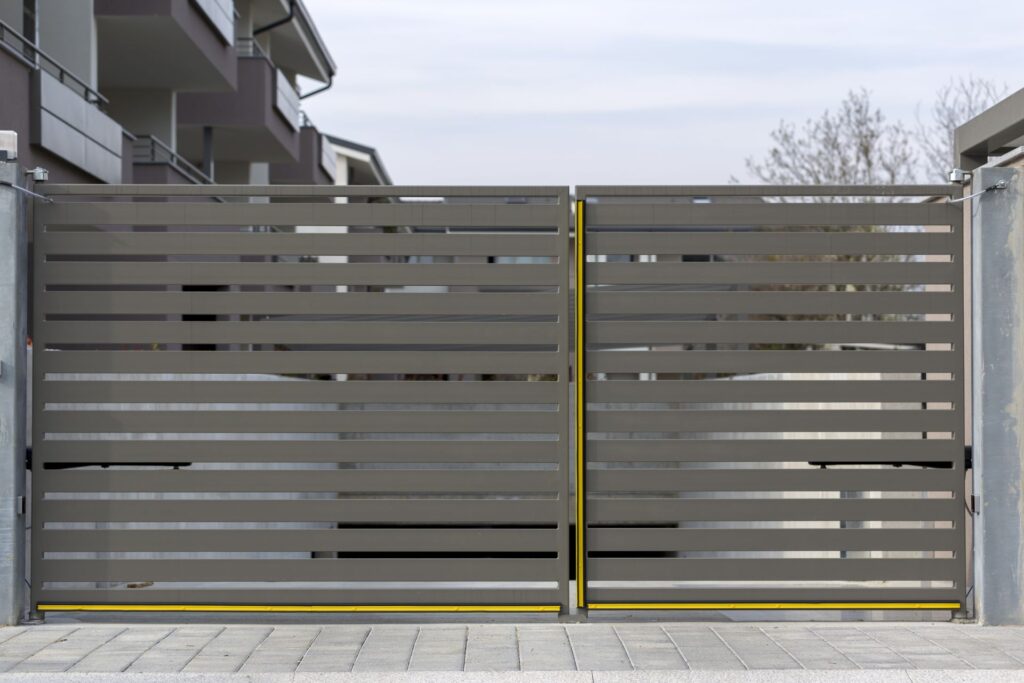
Security And Privacy
Wooden Gates: Security and Privacy
When it comes to choosing a gate for your property, wooden gates are an excellent option for those who prioritize privacy. One of the key advantages of wooden gates is their solid, non-transparent structure, which creates a natural barrier between your home and the outside world. Unlike other materials that may have gaps or open spaces, wooden gates offer complete coverage, making it difficult for passersby to see inside your property. This feature makes wooden gates highly desirable for homeowners looking to keep their outdoor spaces private and secure.
In terms of security, wooden gates are sturdy and can deter potential intruders. The sheer bulk and solid construction of a wooden gate provide a strong physical barrier that is not easily bypassed. However, it’s important to consider that wooden gates may experience wear and tear over time. Exposure to weather conditions such as rain, sun, and wind can cause the wood to weaken, warp, or rot if not properly maintained. To maximize the longevity and security of a wooden gate, regular maintenance such as sealing, staining, or painting is recommended. When well-maintained, wooden gates provide both excellent privacy and a reliable level of security.
Metal Gates: Security and Privacy
Metal gates, on the other hand, are known for their superior strength and security. Materials like steel or wrought iron create an imposing and durable barrier that can withstand heavy impact and resist tampering. For homeowners concerned about protecting their property from intruders, metal gates are often the go-to option due to their robustness and resistance to forced entry. In high-security situations, metal gates are usually considered the best choice because of their unmatched durability.
However, while metal gates offer top-tier security, they don’t always provide the same level of privacy that wooden gates do. Metal gates often have gaps or open designs, which can allow visibility into your property. For homeowners seeking both security and privacy, this can be a potential downside. To address this, many people opt to pair metal gates with privacy inserts or panels, such as mesh, wood, or decorative screens. By adding these elements, you can enjoy the security benefits of metal while also creating a more private and secluded outdoor space.
In summary, both wooden and metal gates offer unique advantages in terms of security and privacy. Wooden gates excel in providing total privacy while offering good security, though they require maintenance to remain effective over time. Metal gates, while generally stronger and more durable, may need additional elements to ensure full privacy. The choice between the two largely depends on your specific needs and the balance between security and privacy that you wish to achieve for your property.

Environmental And Sustainability Factors
When choosing a gate for your property, considering the environmental impact is essential. Different materials have varying sustainability profiles, which can affect their overall environmental friendliness. This section breaks down the key environmental and sustainability factors for both wooden and metal gates, helping you make an informed decision.
Wooden Gates: Environmental Considerations
Wood has long been a popular choice for gates due to its natural beauty and versatility. From an environmental standpoint, wood can be a sustainable material, but it heavily depends on where and how it’s sourced. When wood is harvested from responsibly managed forests, particularly those certified by organizations like the Forest Stewardship Council (FSC), it can be considered a renewable resource. The FSC ensures that wood is harvested in ways that minimize damage to ecosystems, prevent illegal logging, and promote long-term forest health.
However, the environmental benefits of wooden gates can be undermined if the wood is sourced irresponsibly. Deforestation, especially in critical ecosystems like rainforests, remains a significant global concern. Clear-cutting forests not only contributes to biodiversity loss but also accelerates climate change by reducing the Earth’s capacity to absorb carbon dioxide. To ensure your wooden gate is as environmentally friendly as possible, look for certification labels such as FSC, which guarantee that the wood comes from sustainable sources.
In addition to responsible sourcing, wood also has the advantage of being biodegradable, which means it will eventually break down naturally at the end of its life cycle. With proper care and maintenance, wooden gates can last for decades, reducing the need for frequent replacements and minimizing waste.
Metal Gates: Environmental Considerations
Metal gates, particularly those made of aluminum and steel, are another popular choice for homeowners. From a sustainability perspective, one of the key advantages of metal gates is their recyclability. Metals like aluminum can be recycled indefinitely without losing quality, making them a highly sustainable option. Recycled aluminum, in particular, requires only a fraction of the energy to produce compared to virgin aluminum, which significantly reduces its environmental impact.
However, the production process of metal gates is not without its environmental concerns. The extraction and processing of raw materials such as bauxite (for aluminum) and iron ore (for steel) can be energy-intensive and lead to environmental degradation, including habitat destruction and pollution. The environmental impact of metal gates largely depends on the manufacturing process. If the metal is sourced from recycled materials and produced using energy-efficient methods, it can be a more sustainable option.
Additionally, metal gates are incredibly durable, often outlasting their wooden counterparts by many years. This longevity further reduces their overall environmental footprint by decreasing the frequency of replacement and reducing waste. When a metal gate does reach the end of its life, the material can be melted down and repurposed, keeping it in circulation and reducing the need for new raw materials.
Both wooden and metal gates offer unique environmental advantages, but the key lies in responsible sourcing and production processes. Wooden gates can be highly sustainable if the wood is sourced from certified forests, while metal gates, particularly aluminum, offer the benefits of recyclability and durability. By considering these factors, you can choose a gate that not only fits your aesthetic and functional needs but also aligns with your environmental values.

FAQs: About Are Wooden Or Metal Gates Cheaper
Are wooden gates cheaper than metal gates?
On average, wooden gates are cheaper than metal gates when it comes to initial costs. Wooden gates can range from $300 to $1,500, depending on the wood type and design, while metal gates typically cost between $600 and $4,000. However, metal gates may offer better value in the long run due to their durability and lower maintenance costs.
What are the maintenance costs for wooden gates?
Wooden gates require regular maintenance to ensure longevity. This includes annual sealing, painting, or staining to prevent damage from weather, moisture, and insects. Over a period of 10-15 years, these maintenance tasks can add up, often making wooden gates more expensive in the long term compared to metal gates.
How long do wooden gates typically last?
The lifespan of wooden gates depends on the type of wood and the climate they are exposed to. On average, wooden gates last 10-15 years with proper maintenance. However, in humid or rainy environments, the lifespan may be shorter due to the risk of rot and warping.
Are metal gates more durable than wooden gates?
Yes, metal gates, especially those made of wrought iron or steel, are generally more durable than wooden gates. Metal gates can last several decades, often 50 years or more, with minimal maintenance. Aluminum gates are also highly resistant to rust and corrosion, making them a low-maintenance option.
Do metal gates require any maintenance?
While metal gates require less maintenance than wooden gates, they still need some upkeep to prevent rust or corrosion, especially wrought iron gates. Periodic cleaning and applying rust-proof treatments can help extend their lifespan. Aluminum gates, on the other hand, are largely rust-resistant and require very little maintenance.
Which type of gate is better for privacy?
Wooden gates are generally better for privacy since they provide a solid barrier with no gaps. Metal gates, particularly those with ornate designs, may have open spaces, which can reduce privacy. However, metal gates can be customized with privacy panels or inserts if desired.
Which gate material is more environmentally friendly?
Wooden gates can be environmentally friendly if they are made from sustainably sourced wood (such as FSC-certified wood). However, wood production can contribute to deforestation if not sourced responsibly. Metal gates, particularly aluminum, are recyclable and can be a sustainable option, though their production process may have a higher environmental impact.
Can wooden gates be customized more easily than metal gates?
Both wooden and metal gates offer significant customization options, but wood may be easier to customize in terms of design flexibility, carving, and painting. Metal gates can also be highly customizable, especially wrought iron, which allows for intricate designs, but these customizations can add to the cost.
Are metal gates more secure than wooden gates?
Metal gates are typically more secure than wooden gates due to their strength and resistance to impact. Wrought iron or steel gates offer a strong barrier, making them ideal for those prioritizing security. Wooden gates can still provide decent security, but they may not be as durable over time.
Which type of gate is more cost-effective in the long run?
While wooden gates are often cheaper upfront, metal gates tend to be more cost-effective in the long run due to their durability and lower maintenance needs. Over a 10-15 year period, the maintenance costs for wooden gates can exceed the initial price, whereas metal gates require less upkeep and can last for decades.
Conclusion
In conclusion, when choosing between wooden and metal gates, it’s important to consider several key factors that influence the overall cost. Wooden gates tend to be more affordable upfront, but they often require higher maintenance over time, including painting, staining, and repairs to prevent weather damage. On the other hand, metal gates generally come with a higher initial price tag but are known for their superior durability and lower maintenance needs, making them a long-term investment. Ultimately, the choice comes down to balancing immediate costs with ongoing upkeep and the expected lifespan of the gate, ensuring the best value for your specific needs.
About the Author:
Mike Veail is a recognized digital marketing expert with over 6 years of experience in helping tradespeople and small businesses thrive online. A former quantity surveyor, Mike combines deep industry knowledge with hands-on expertise in SEO and Google Ads. His marketing strategies are tailored to the specific needs of the trades sector, helping businesses increase visibility and generate more leads through proven, ethical methods.
Mike has successfully partnered with numerous companies, establishing a track record of delivering measurable results. His work has been featured across various platforms that showcase his expertise in lead generation and online marketing for the trades sector.
Learn more about Mike's experience and services at https://theleadguy.online or follow him on social media:
